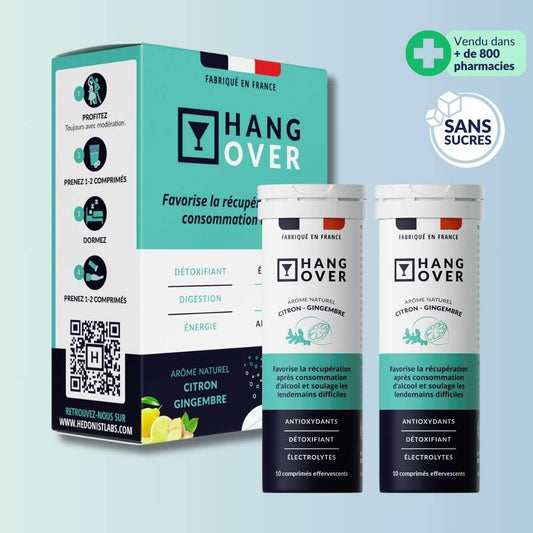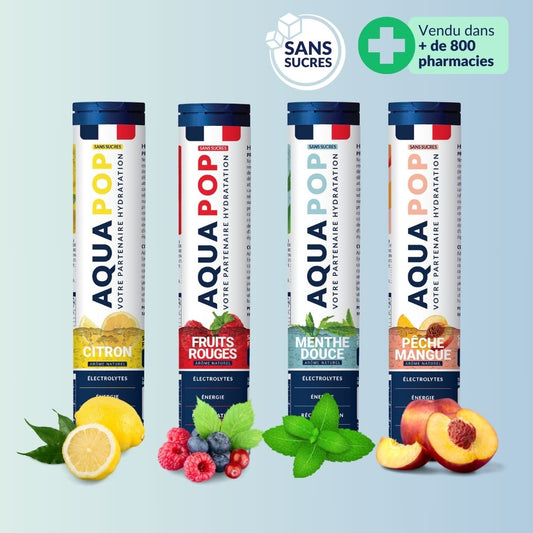The dangers of self-medication in the management of hangovers
In France, this phenomenon can quickly become problematic when it invites itself to drinking parties.
Thinking he has the right reflex, the patient goes to the pharmacy to stock up on medication.
His choice is towards substances that can aggravate his condition and are often useless in the face of the symptoms caused by veisalgia (hangover).
Here are a few examples:
- - Aspirin increases blood alcohol concentration
- - Paracetamol is highly metabolized by the liver, which is already busy eliminating alcohol. This makes it toxic.
- - Some antihistamines (Nautamine, Nausicalm ect...) are used to treat nausea, but their hypnotic properties make them less alert (1).
Over 150 drugs interact negatively with alcohol, some of them having an antabuse effect.
What is it?
The antabuse effect is an unpleasant physiological reaction caused by an accumulation of acetaldehyde (a toxic metabolite of alcohol). The antabuse effect causes a clinical picture defined by a facial flush, hot flushes, diarrhea, vomiting, and so on.
But what to do?
Alcohol consumption leads to dehydration. That's why it's so important to stay hydrated by drinking water.
In addition to being acidic, coffee can increase dehydration. It is therefore preferable to wake up with black tea, which is also rich in caffeine.
You can also help your body cope with this problem with an innovative product, Hang-Over by Hedonist labs. It will effectively rehydrate, detoxify and regenerate your body.
(1) Médicaments sans ordonnance - Les bons et les mauvais, Editions de La Martinière (2011). 571 p.




